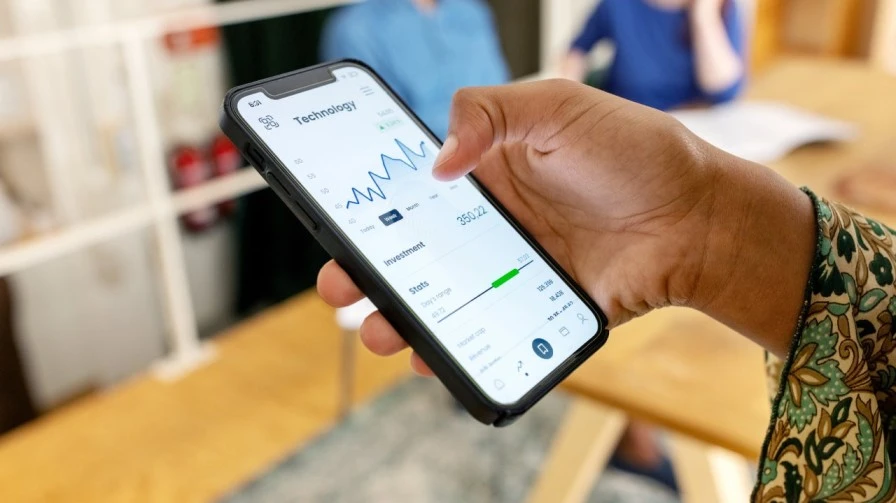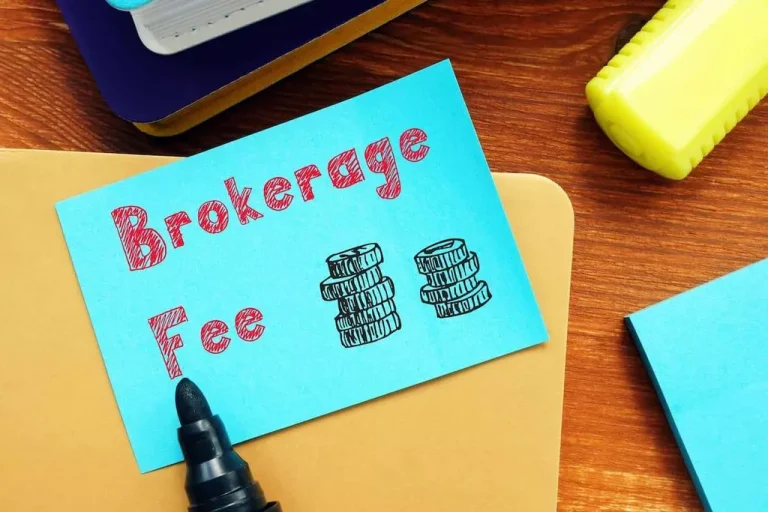A special combination of advantages offered by money market accounts (MMAs) may appeal to depositors seeking greater interest rates, liquidity, and security. However, when comparing various savings options, it's critical to comprehend the entire range of benefits and drawbacks related to these accounts. It's crucial to weigh the disadvantages of money market accounts, such as transaction limits, fees, and minimum balance requirements, in addition to their higher interest rates, FDIC insurance, and flexible check-writing and debit card capabilities.
See a financial counselor if you need assistance on how to allocate your assets among various account kinds.
Money Market Accounts: What Are They?
Banks and credit unions provide money market accounts (MMAs), a form of deposit account that usually has a greater interest rate than a standard savings account.
Due to the deregulation of the banking industry, these financial products came into existence in the 1980s and are intended to offer account users the advantages of both checking and savings accounts. This implies that they gradually accrue interest, much like savings accounts. They also provide some of the same flexibility as checking accounts, including the ability to access funds via debit cards and write limited checks.
Furthermore, the Federal Deposit Insurance Corporation (FDIC) insures MMAs up to the maximum amount allowed by law—currently $250,000 per depositor, per insured bank, for each category of account ownership. For people searching for a secure location to store their short-term assets, this insurance adds an extra degree of protection, guaranteeing that their money will be safeguarded even in the case of a bank failure.
Money market account mechanics are similar to savings account mechanics. MMAs, on the other hand, frequently provide better interest rates; they are usually compounded daily and disbursed on a monthly basis. Account holders might need to keep a larger minimum amount than they would with a standard savings account in order to take advantage of these higher rates.
Money Market Account Benefits

A money market account might be especially helpful for combining earning potential and financial stability if you're saving for an emergency fund or future trip. Here are five typical benefits of creating a money market account:
Increased Interest Rates
Competitive interest rates that outperform those of standard savings accounts set money market accounts apart. A $10,000 deposit, for example, would yield $50 in an MMA with a 0.5% APY after a year, whereas the same amount deposited in a standard savings account at 0.06% would only yield $6 in interest. Money market accounts are a desirable choice for people who want to optimize their interest earnings because of the potential for compound interest over time.
The overall state of the economy is one of the many variables that affect money market account interest rates. For instance, financial institutions often increase the rates on money market accounts in response to increases by the Federal Reserve in its benchmark interest rate. On the other hand, the interest rates on these accounts usually go down in recessions or when the Federal Reserve cuts interest rates.
Availability of liquid assets
Liquidity is one of the most attractive aspects of money market accounts. Owners of accounts can easily access their money without paying fees. (On the other hand, withdrawal and transfer limits might be imposed by certain financial institutions.) This degree of accessibility is very helpful for people who need to access their money frequently and don't want to be limited by more restrictive financial instruments. The flexibility to take out money without incurring penalties is quite useful, for instance, in case of an emergency or while saving for a short-term objective like a down payment on a house.
Money market accounts provide better liquidity when compared to other investment alternatives like certificates of deposit (CDs), which require an investment to be made for a specific period of time. Even though mutual funds and stocks are liquid as well, their greater volatility may make them unsuitable for people who need to access their money quickly without running the risk of losing it. Because they combine stability and accessibility, money market accounts are a great option for investors who want quick access to their money.
Minimal Risk
Investing money in short-term, reliable products such as CDs and government bonds is a common practice for money market accounts. Because of their cautious approach, money market accounts are considered low-risk investments because the principal amount is preserved.
These accounts give people who value capital security over risk aversion a safe haven where their money can grow gradually without being exposed to the risks associated with more aggressive investment options.
FDIC Protection

The FDIC's insurance coverage, which limits deposits to $250,000 per depositor, per insured bank, and for all account ownership categories, is a major benefit of money market accounts. In the improbable event of a bank failure, this federal insurance serves as a safety net, guaranteeing that depositors' money is protected up to the insured level.
This implies that the FDIC insurance may protect an individual's entire savings. Many people pick money market accounts as a secure option to build their funds because of this degree of safety. Some with bigger portfolios, though, could only have a fraction of their savings covered.
Writing Checks and Using Debit Cards
The extra convenience of check writing and debit card access—features that are generally connected with checking accounts—comes with money market accounts. With this functionality, bills can be paid and daily expenses can be managed straight from the account, providing a level of freedom not often found in other savings options. For instance, you can write a check straight from your MMA without having to transfer money if you have an unforeseen auto repair bill.
Money market accounts' drawbacks
Additionally, money market accounts may have certain disadvantages that could conflict with your financial objectives and plans. Take into account these three typical drawbacks before to creating an account:
Limits on Transactions
Savings account holders were previously restricted by Regulation D to six "convenient" transfers or withdrawals each month. This clause included money market accounts as well. While the Federal Reserve Board revised this federal regulation in April 2020 to provide limitless easy transfers, several financial institutions have chosen to maintain their own restrictions. These limits are kept in place by these institutions to guarantee that the accounts continue to function primarily as savings accounts, protecting their stability and liquidity.
Take into consideration the potential effects of these transaction limits if you require regular access to your funds. These limitations could be annoying if you need large amounts of money rapidly or if you own a small business and conduct a lot of transactions each month.
Charges
Money market accounts may have a number of costs associated with them that reduce their advantages. For instance, monthly maintenance costs might differ greatly throughout institutions, and there are frequently fines associated with exceeding transaction limitations or failing to keep a minimum balance. Even though some fees can be avoided by fulfilling specific requirements, such maintaining a minimum combined amount across all accounts or setting up direct transfers, they can still be very costly.
Particularly on lesser amounts, even a modest monthly maintenance charge can add up to a significant sum over the course of a year and reduce interest received. Because of this, clients may see a lower actual return on their investment, which makes money market accounts less appealing to people who don't regularly meet the requirements to have these fees waived.
Minimum Requirements for Account Balance
Depending on the institution, money market accounts may have a minimum balance requirement that can be anything from a few hundred to several thousand dollars. A reduction in interest rates or monthly service fees can result from falling below this cap, and these benefits can add up. These regulations are enforced by financial institutions to guarantee that the account's funds are sufficiently stable to provide profitable investment opportunities.
Read Also: Essential Skills for Finance Careers
Savings Account vs. Money Market Fund vs. Money Market Account

There are significant differences between money market accounts, money market funds, and savings accounts.
If you want to save money and earn interest at the same time, you should create a savings account because it's a safe haven with a minimal minimum balance requirement. These accounts are especially useful for people who want to save money for unforeseen costs or emergencies without having to deal with the hassles of keeping a large balance or taking on investing risks.
However, savings accounts often offer fewer amenities and yield far less interest than money market accounts. One account type that may have restricted check writing capabilities is a money market account.
Conversely, money market funds have the potential to yield more returns than money market accounts or savings accounts. These are financial instruments that combine the capital of investors to buy short-term debt instruments like commercial paper and Treasury bills. While the SIPC may offer some protection in the event that an investment business fails, the FDIC does not offer insurance for them.
Money market funds are appropriate for investors who want a liquid, low-risk investment. Examples of these investors include individuals wishing to park assets they plan to utilize within the next few months or corporations maintaining short-term cash reserves. Due to their reliance on the performance of the underlying securities, money market funds have the potential to offer greater yields, but there is a catch: they are not FDIC-insured.
In summary
Money market accounts (MMAs) provide a special combination of characteristics to meet the needs of those looking to secure, liquid, and increase the interest rate on their money. MMAs can be a desirable choice because of their potential to earn higher than traditional savings accounts, the ease of writing checks and using debit cards, and the security provided by FDIC insurance. Potential account holders must carefully weigh the restrictions, though, since they can affect the overall advantages of these accounts. These restrictions include transaction limits, fees, and minimum balance requirements.










